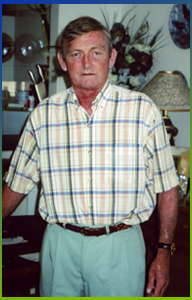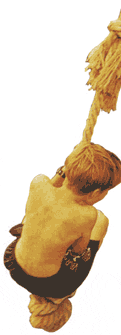


| kidneys | |
| renal failure | |
| diet | |
| membership | |
| donations | |
| photo gallery |
| Articles and Stories | ||
Sherry's Jouney - my life with Lupus |

Maxie Scully is 51 and received a transplanted kidney when he was 21. He is possibly the longest surviving kidney trasnplantee in the world. His name by the way is Maxie. Not short for Maximilian he explained: just Maxie. Born and brought up in Galway, Ireland, he was a lively and busy young man. His father was a veterinary surgeon and thereby hangs a tale. He was a keen sportsman, playing rugby among other things, but horses were his first and enduring love. His ambition was to ride for Ireland. At the age of 19 he had been accepted by the Irish Army Equitation School, to further his horsemanship, when he was struck down by kidney failure due to the rare blood disorder known as Good Pastures Syndrome. He was put on dialysis for two years and in 1975 received a transplant. For eight weeks the new kidney would not function. His father, seeing Maxie's weakened state in hospital, was concerned that a great deal of attention was being paid to the transplanted kidney but in the meantime Maxie's lungs were taking serious strain. On his next visit Maxie's father brought some medicine he used for animals and insisted that Maxie decide whether to take it or not. His father would not make the decision. Maxie took it and two days later his kidney started functioning. The crisis was over. |
|
| Back to Menu |
| Archived articles: | |
| Maxie Scully - kidney transplantee of over 30 years. | |
| A Tribute to Kidney Transplant children - Transplant News, 2006, Wyeth, Vol 5, Issue 17. |
|
| Transplantaion in children- Transplant News, 2006, Wyeth, Vol 5, Issue 17. |
 |
|
His abiding interest is in promoting organ transplants and motivating transplantees to extend themselves, not be overcautious, and enjoy the new lease of life they have been given. His personal history since receiving a kidney in 1975 is a wonderful example of how successful this approach can be. |
A Tribute to Kidney Transplant Children, their families and donors.
"The donor who offers a part of his body for transplantation is making an inestimably precious gift. The acutely ill patient who receives the organ accepts a priceless gift. The giving and receiving of a gift of enormous value, we believe, is the most significant meaning of human organ transplantation." ( "The Courage to Rid" by Renee C. Fox and Judith Y. Swazey. The University of Chicago Press, 2nd Edition, 1998)
I have been actively involved for 33 rears in the care of children who have received kidney transplants, and it has never failed to thrill me in seeing the joy of the transplanted kidney functioning and the child starting a new life. The courage of the child and the dedication of the family has made this segment of my medical care inestimably worthwhile.
A happily married woman whom I had first treated 30 years ago walked into my consulting room the other day with her mother to sac "hello'-. Her mother had given her her first kidney following a severe haemolytic uraemic syndrome at 6 years of age. This kidney and the next from a cadaver donor, lasted a total of 17 years. and she now has excellent function with a third one from a paternal aunt. Her survival has depended upon the responsibility and compliance of firstly her mother and later herself.
Like Amanda. I can name numerous patients I have been involved with; such as Reon, Veronica, Terresa, Nicole, Abel, Wayne, Yusuf. Tulani, Hussen and Hassen. Bradley, Tshepang, Molly, Ryan, Paul, Andre, Jan. Eugene, Riaan, Yatasha, Allen. Brian, Magrietjie, Feroz, Boitumelo. Gustav, Ben, Shaun, Kelvin, Annah. Fanie, Francois Lovegloria, Nompostile, Mariam, Adele, Alinda, Simangele, Mpho, Willem, Monica, Chanel, Desmond. Zakarivya, Motlatsi, Luqmaan. Matt and many others.

Their chance of a new life" has come from the precious gift, usually from a parent if related, or the forethought of a cadaver donor or his her family, "-here the magnanimous gift is made despite the most trying circumstances.
 Prof. P.D. Thomson
Prof. P.D. Thomson
Clinical Head of Paediatrics & Paediatric Nephrology, Wits Donald Gordon Medical Centre
Challenges facing paediatric transplantation |
||
| Social problems are one of our biggest stresses. Many children come from far afield and parents are unable to stay with them - hence Marang House has been a blessing as many of our dialysis patients reside there. A dedicated family medical and social worker team are required. |  |
|
| Growth is also a big concern- children who are chronically ill do not grow well. A dedicated dietician is beneficial. Some children have a gasuostomy inserted so that they can receive extra feeds overnight. Growth is important as far as transplantation is concerned - we require our patients to be at least 10 kg for a transplant - and this is often a difficult goal to achieve. | ||
| Adolescence and compliance: teenage years are difficult enough for normal children, but becomes a nightmare in children requiring chronic medication and clinic visits. It is a difficult period for the patients and the caregivers and requires devoted support and attention. | ||
| Transition to an adult unit is the next problem and patience and dedication on the part of patient, adult and paediatric nephrologists is needed. | ||
| Donor shortage - an ongoing problem, but specifically throughout 2005; very few cadaver kidneys were
available. Fortunately we were able to do several
related living donors.
We also have three lovely girls who have oxalosis, and are in desperate need of combined liver-kidney transplants. |
||
Positive aspects of paediatric transplantation |
||
| Dr. D. Hahn Head of Paediatric Renal Unit, Johannesburg Hospital | ||
| Back to Menu |
| incorporated association not for gain registration no: 1977/002650/08 | Website powered by |
Kwa Zulu Natal Kidney Association, P.O.Box 1332, Durban, 4000, ajfa@iafrica.com |
|